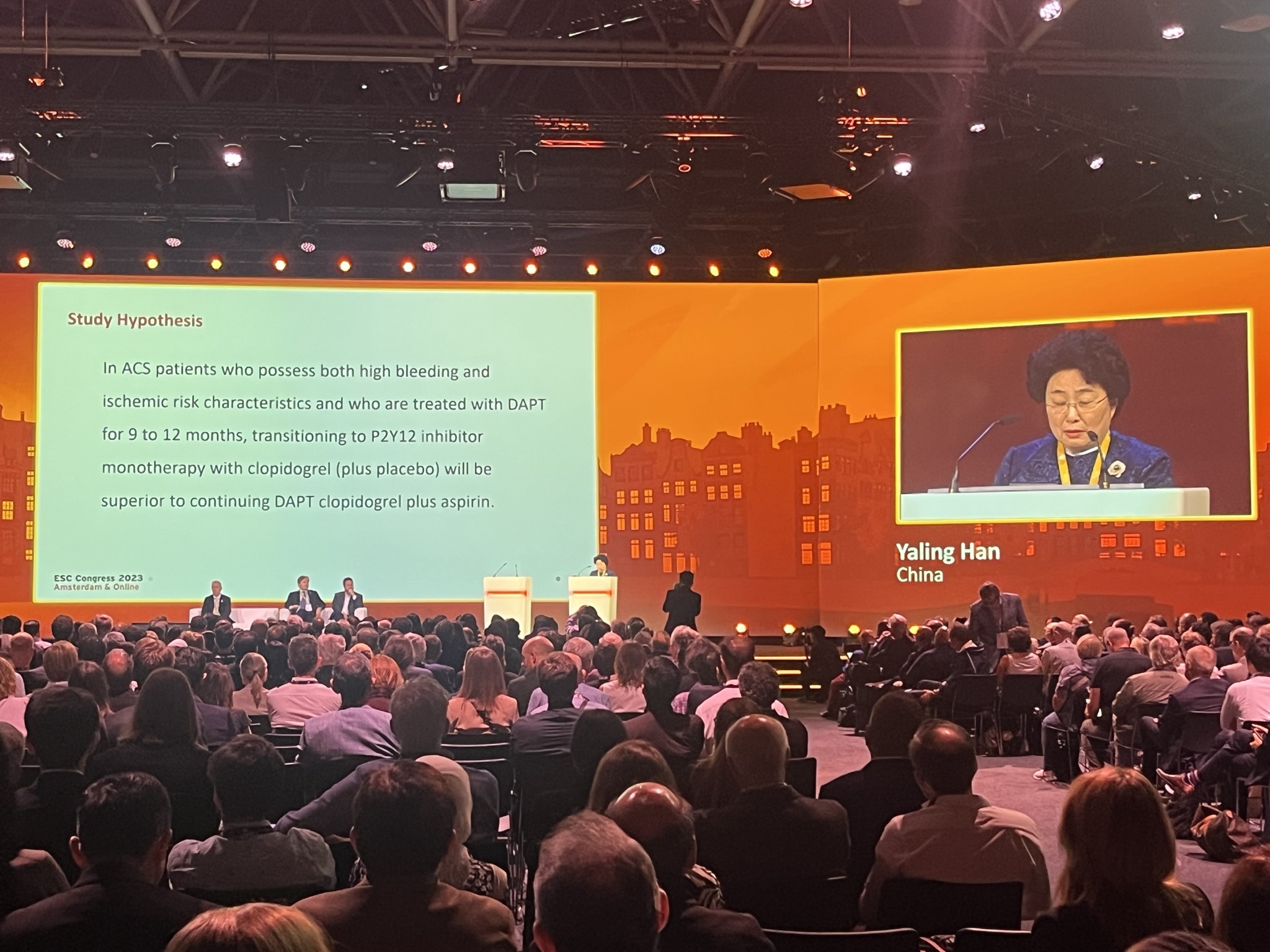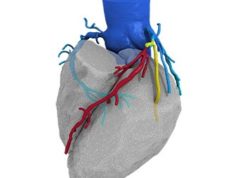 Extended P2Y12 inhibitor monotherapy beyond 12 months after percutaneous coronary intervention (PCI) reduces bleeding and ischaemic events in acute coronary syndrome (ACS) patients at high risk for both types of events, findings of the OPT-BIRISK trial, presented at the Europeans Society of Cardiology (ESC) congress (25–28 August, Amsterdam, The Netherlands), have shown.
Extended P2Y12 inhibitor monotherapy beyond 12 months after percutaneous coronary intervention (PCI) reduces bleeding and ischaemic events in acute coronary syndrome (ACS) patients at high risk for both types of events, findings of the OPT-BIRISK trial, presented at the Europeans Society of Cardiology (ESC) congress (25–28 August, Amsterdam, The Netherlands), have shown.
Ya-Ling Han (General Hostpital of Northern Theater Command, Shenyang, China) presented findings of the trial, which examined whether in ACS patients with high bleeding and ischaemic risk characteristics who remained event free after a standard course of dual antiplatelet therapy (DAPT) after PCI, an extended course of clopidogrel monotherapy would be superior to ongoing DAPT treatment with aspirin and clopidogrel.
Investigators enrolled patients who had completed nine to 12 months of DAPT after implantation of a drug-eluting stent, and were free from major adverse clinical events during the previous six months. The patients were randomised 1:1 to clopidogrel (75mg/day) plus placebo or clopidogrel 75mg/day) plus aspirin (100 mg/day) for nine months.
The primary endpoint was the rate of clinically-relevant bleeding nine months after randomisation, defined as Bleeding Academic Research Consortium (BARC) types 2, 3, or 5 bleeding, and the key secondary endpoint was the rate of major adverse cardiac and cerebral events (MACCE) nine months after randomisation, defined as a composite of all-cause death, myocardial infarction, stroke or clinically-driven revascularisation.
A total of 7,758 patients with ACS were randomised at 101 Chinese centres between February 2018 and December 2020; 3,873 were randomly assigned to receive clopidogrel plus placebo and 3,885 to receive clopidogrel plus aspirin.
The primary endpoint of BARC types 2, 3, or 5 bleeding at nine months after randomisation occurred in 95 patients (2.5%) assigned to clopidogrel plus placebo and in 127 patients (3.3%) assigned to clopidogrel plus aspirin. The key secondary endpoint of MACCE occurred in 101 patients (2.6%) in the clopidogrel plus placebo group and in 136 patients (3.5%) in the clopidogrel plus aspirin group.
“Among ACS patients at high risk for both recurrent ischaemic and bleeding events after PCI who had completed a nine to 12 month standard course of DAPT and were free from major events, a strategy of extended P2Y12 inhibitor monotherapy with clopidogrel for an additional nine months was superior to DAPT with aspirin and clopidogrel for reducing clinically-relevant bleeding and ischaemic events during this period,” said Han of the results. “The increased rate of MACCE in the clopidogrel plus aspirin group was surprising and may be because haemorrhagic events, which are more common with ongoing DAPT, could be associated with an adrenergic state with increased platelet aggregation due to hypotension, remedial procedures to treat bleeding, and the cessation of anti-ischaemic medications.”













